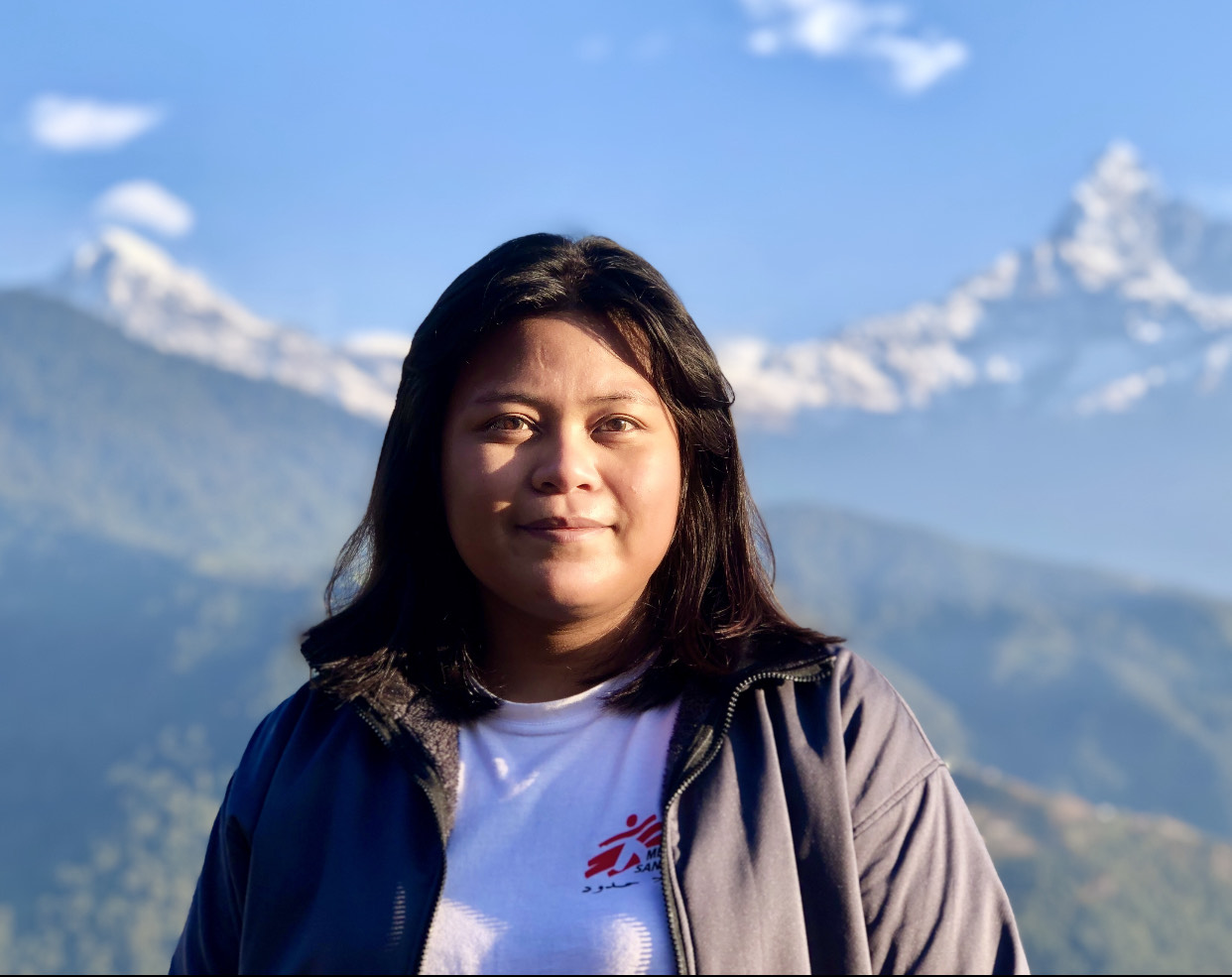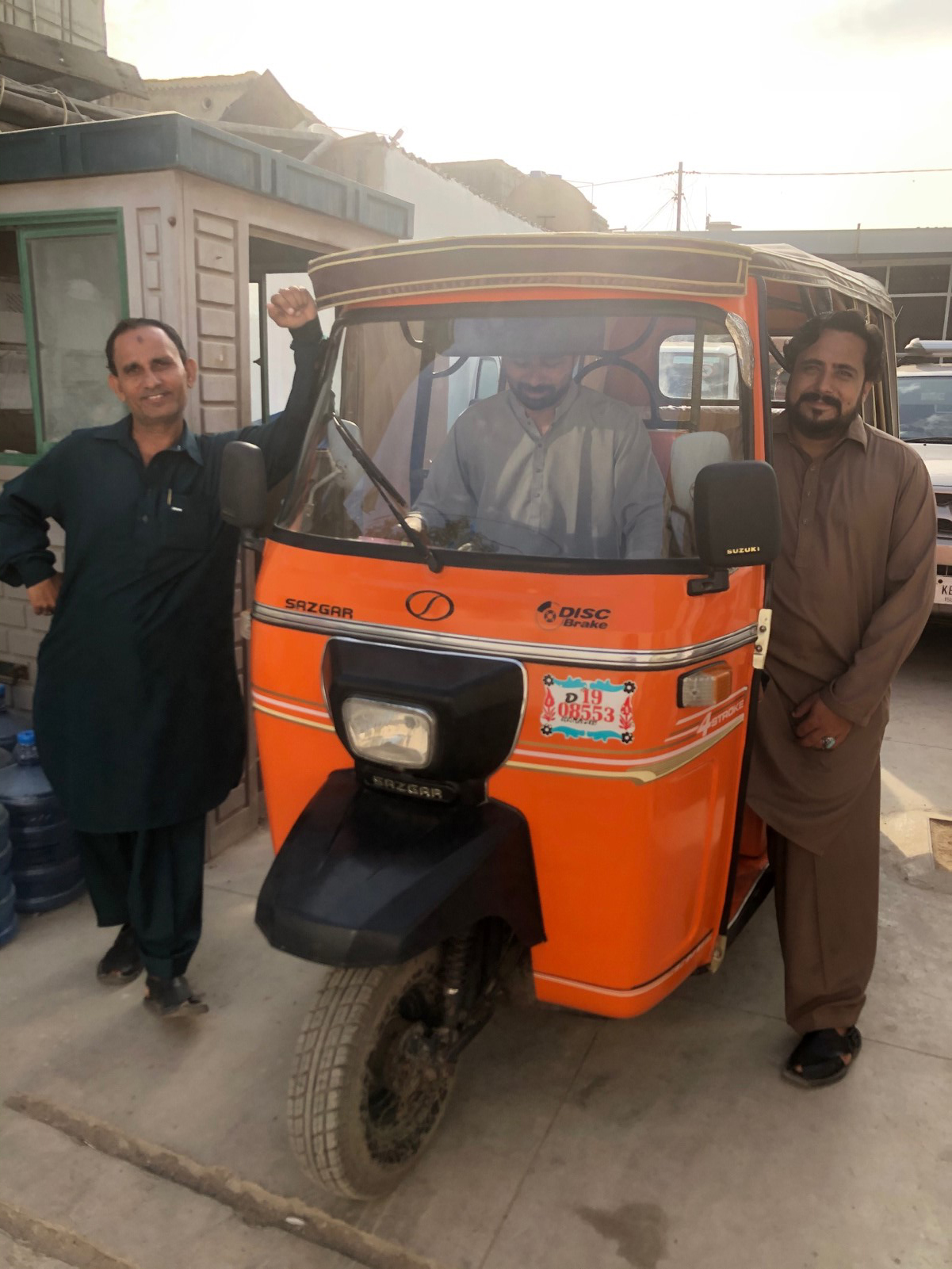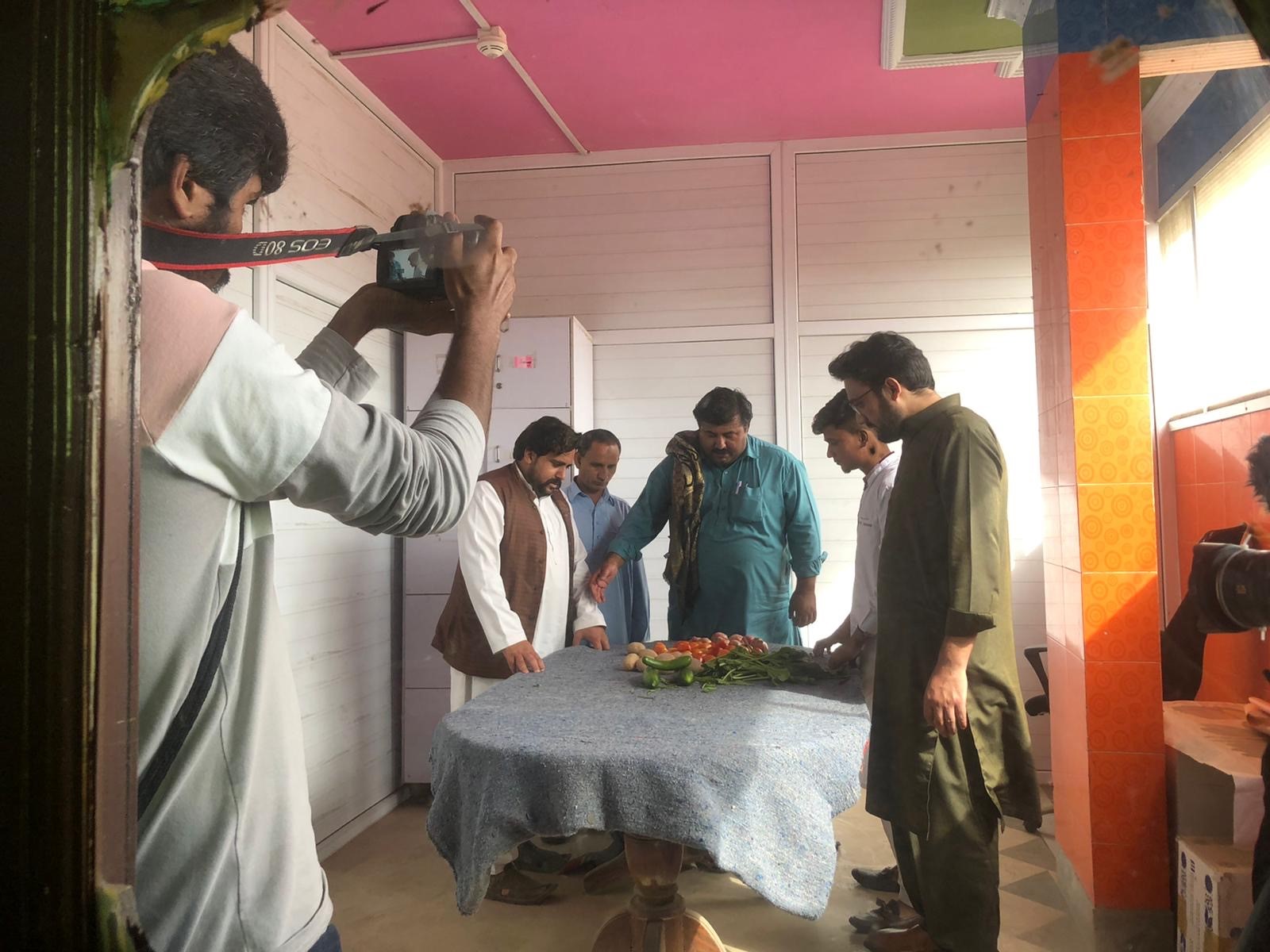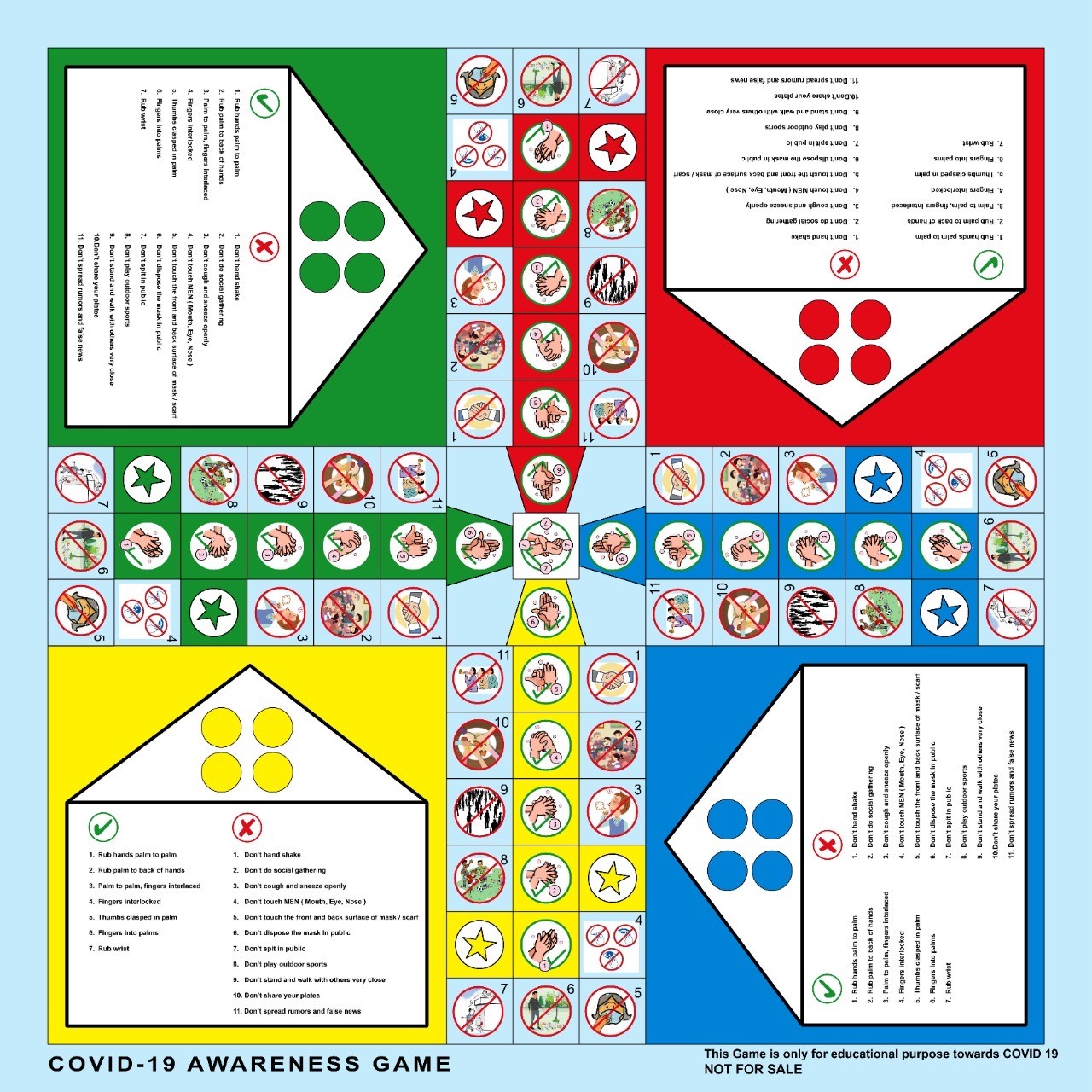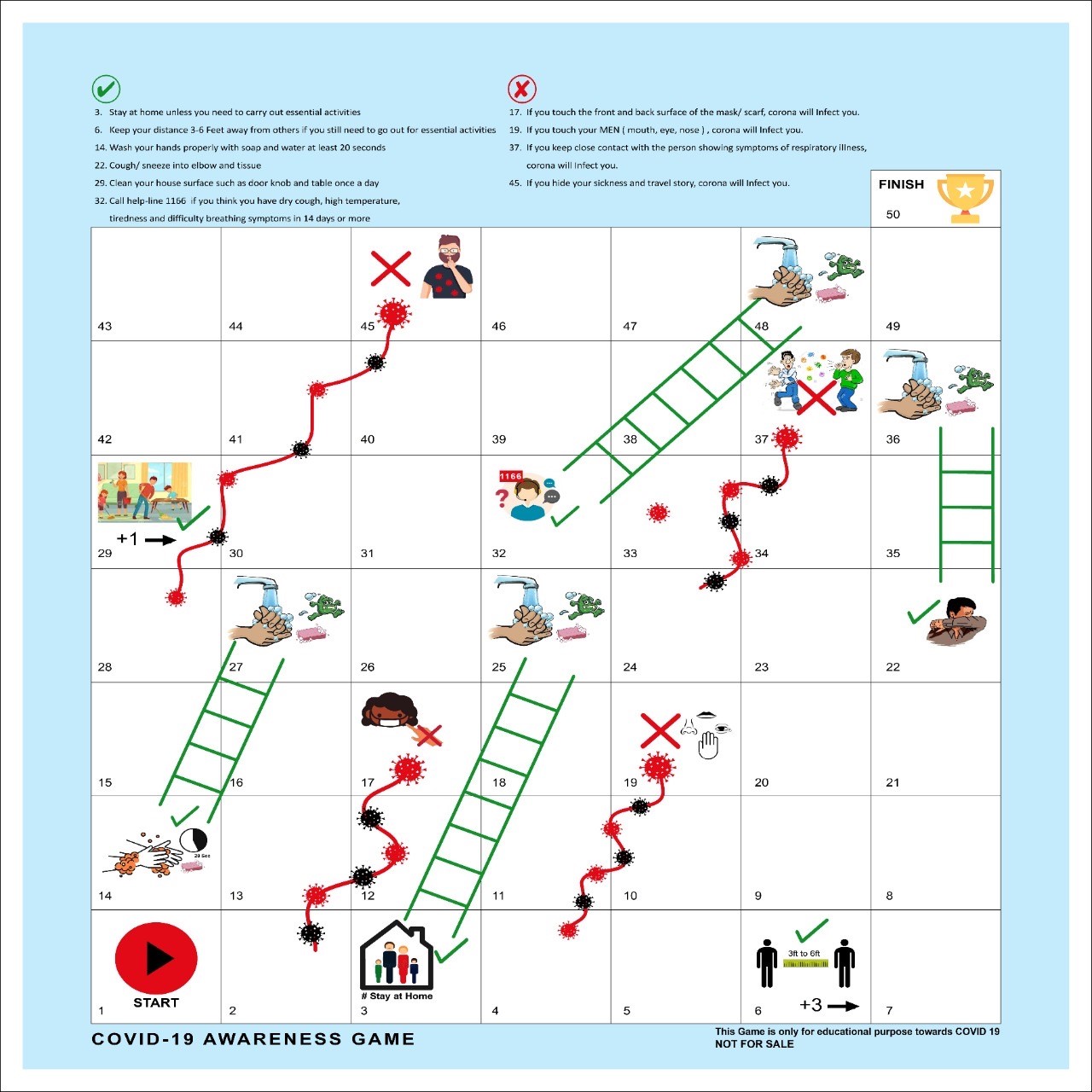Snakes, ladders, and COVID-19: Health promotion in Pakistan
With a COVID-19 lockdown in place, Seinn Seinn and the team have to find new ways to reach the community. But as she explains, necessity truly is "the mother of invention"…
Halfway into my first assignment with MSF, a pandemic broke out.
As the weeks and months went by, the virus spread, and the world grappled with how to survive. The Government of Pakistan and provincial Sindh government took precautionary measures in an attempt to contain the further spread of the virus in the country.
Lockdown
The entire Karachi region and the whole of Pakistan were sealed off, travel was banned, and universities and schools were closed. Meanwhile, only essential activities were permitted, such as seeking medical care or grocery shopping.
MSF activities were not spared and for a time our hepatitis C clinic was at standstill. No public transportation and lockdown meant staff were unable to come to work and patients unable to access care.
It was not all doom and gloom though. The clinic team managed to distribute medication to all registered patients so that they wouldn't run out.
Acting fast
A week before lockdown commenced, our team managed to do outreach activities and met with religious and community leaders, teachers, social workers and other key people locally to provide health education and basic knowledge of COVID-19.
We discussed prevention methods and encouraged them to share this information with their respective communities. We posted health education banners around schools, vegetable shops, busy intersections, as well as distributing health educations leaflets to people nearby these locations.
A new approach
During lockdown, the MSF clinic managed to open twice a week.
The rest of the week we would be brainstorming and planning in the house where the project’s international staff live. It became our main operations office where key team members met and figured out how to respond to the pandemic ravaging the nation.
No easy task
It was no easy task creating health promotion activities in this context. We had just three health promoters living nearby MSF clinic and they were not even allowed to do community outreach.
My initial plan was to record key messages on COVID-19 prevention in different languages and play them through the speakers of the MSF health promotion rickshaw. However this did not come to fruition, as it contravened lockdown regulations and social distancing rules for the rickshaw to enter Machar Colony. We were concerned that children would be tempted to run after the rickshaw, and the possibility of a crowd gathering.
Fighting fake news
During the lockdown, the virus wasn’t the only thing spreading: fake news was too.
The health promotion team kept track of rumors and gave daily reports. At that point, we were faced with the reality that conducting health promotion sessions might be impossible.
But as they say “necessity is the mother of invention”.
We brought our brains together and created health promotion videos to be shared through WhatsApp and local cable TV.
In a short span of time, the team created a total of 25 videos in different languages (Urdu, Pashto, Bengali) on different scenarios related to COVID-19. These included prevention, quarantine and isolation, including how to properly wear a mask. All the videos starred our very own MSF doctors, health promoters, clinic staff and community leaders.
MSF TV
Next, we learned that a local cable TV company operated in Machar Colony. We got in touch, and managed to purchase a digital box that allowed us to broadcast our videos on local TV.
And even more amazing, the operator voluntarily runs this MSF channel. This will allow us send health promotion messages about COVID-19, but also hepatitis-C and other general seasonal diseases in the future. The locals are happy to have additional channels where they can receive all health-related educational awareness in different languages, as well as entertainment and movies in between.
Because we hadn't needed to, we hadn't considered using TV or Whatsapp before. Thanks to lockdown and the subsequent restrictions, we became creative in bringing MSF closer to the community. It was a joint effort. In a strange way, the pandemic brought the community together.
Games for good
But we didn't stop with just using digital channels. A highlight of my COVID-19 emergency work was creating something even more engaging...
Whenever I was invited to the community, children invited me to play a game with them.
Practically every household owns a boardgame. Usually the boards are printed on both sides: Ludo on one; Snakes and Ladders on the other. These are games every Pakistani grew up playing with their families.
So, we decided to get involved! With people staying at home due to Ramadan and lockdown, what more could be more enjoyable than a family game?
Ludo game: How to play
The game can be played by up to four people and everyone has to move their pawns from their respective “HOME”.
The “HOME” represented the “Stay Home Stay Safe” instructions for COVID-19 prevention. When pawns are moved outside of the HOME, they either end up in the “SAFE ZONE” or “UNSAFE ZONE.”
You will get infected in the UNSAFE ZONES if the other players’ pawns catch you and your prawns will be sent back to “HOME”.
On the other hand, no other players’ pawns can come and catch you if you land in the SAFE ZONES which is represented by “Hand Washing Steps”.
The winner is the first to have completed seven handwashing steps with all of the pawns reaching step seven. The winner then invites all the other players to join in on handwashing together by following the steps to handwashing with soap as shown in the game board.
Snakes & Ladders game: How to play
The idea behind the game is simple, if you land on the square of bad practices, you will be eaten by the snake and go down, which will delay your final destination of being safe from the virus.
If you land on the square with good practices, you will go up the ladder and be safe from COVID-19.
Climbing the ladder together
Both games are translated into Urdu and distributed to 1000 households who have no access to smartphones and smart TV. The games were distributed only three houses per street in order to cover throughout Machar Colony.
In the time of the pandemic, it was important to find creative ways to keep on working. The need of the community did not stop just because there was a lockdown.
I was lucky to have been a part of a creative and resourceful team willing to think outside the box. We climbed the ladder together instead of being eaten by the snake, and by the snake, I mean frustration and challenges.

